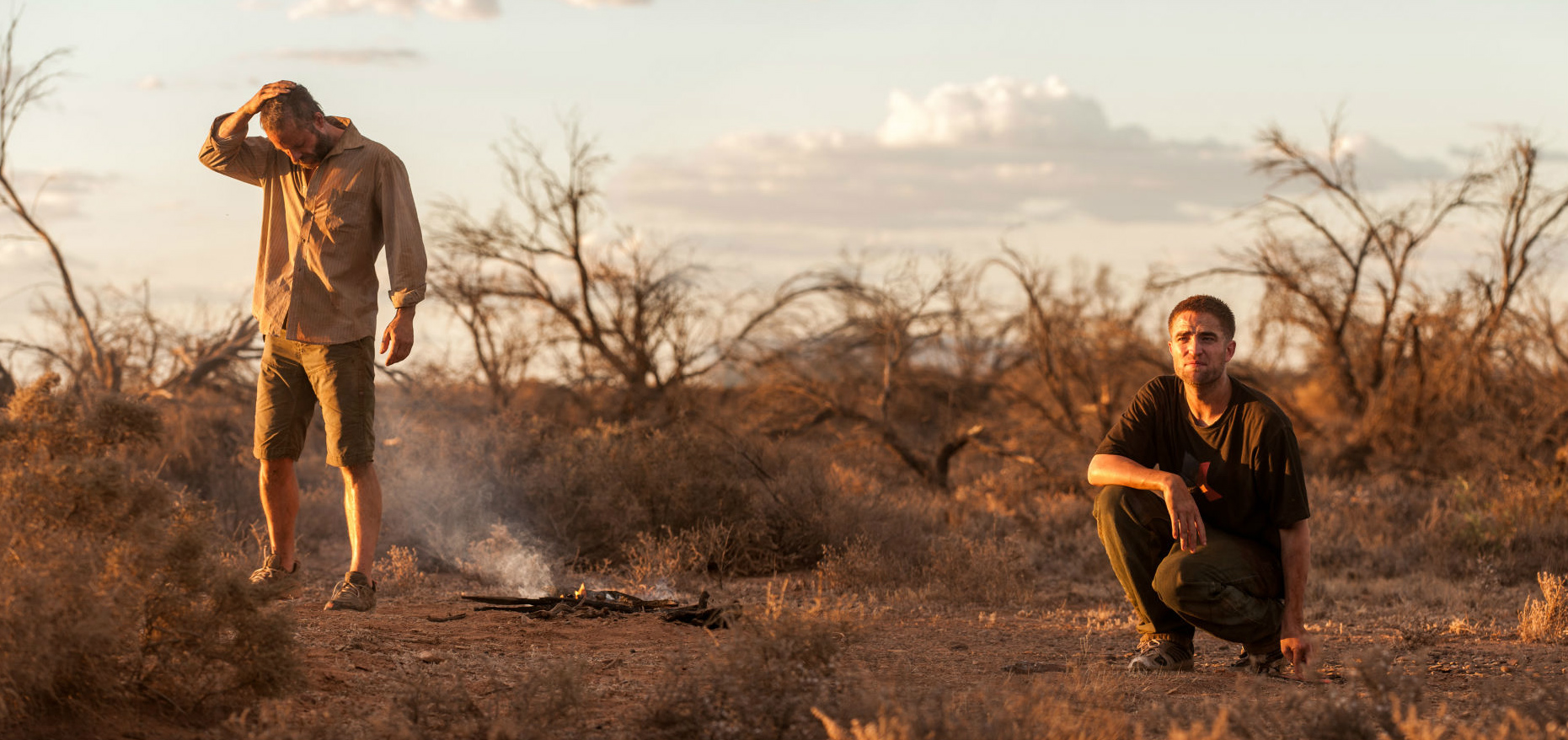
David Michôd’s second feature, after the superb Animal Kingdom, was always going to have a lot to live up to. As Michôd said prior to the screening at Sydney Film Festival, “we roll into Cannes and I can feel everyone’s beady eyes on me”. There’s something admirable, then, in the way he completely rejects many of the elements that made his debut so startling. Gone is the nuanced dialogue, the clever characterisation and the carefully constructed plot – in its place is a growling thriller, ready to burst into pure anger at any moment and burning with tension.
The characters are mostly paper thin, taking more inspiration from films like Vanishing Point than The Proposition when it comes to the relationship with the road and the land.1 There are off-hand references to the collapse of Australia’s economy – Chinese radio stations and company names on trains, a gutted and abandoned mine – yet Michôd doesn’t want to make the film about that. In fact, at times it seems like the film is nothing but connectors between very simplistic plot points and this is no issue whatsoever. Unlike, say, Mystery Road from last years Sydney Film Festival, The Rover revels in its sparseness, both in a visual, but more importantly, in a narrative sense. The dichotomy of space, light and dark, inside and outside, is clearly framed by cinematographer Natasha Braier – tension exists within and without, ever-present.
The sound design by Sam Petty is exhilarating, moving from electronic snarl to a faint saxophone line at the film’s climax that calls to mind Blade Runner. The film takes a massive risk at one point in the film, from an aural standpoint, including a contemporary pop song for no clear narrative purpose yet it works in a way I wasn’t expecting. Michôd and Petty use that sequence to both startle the audience into recognition of a musical work whilst making a (perhaps weak) point about Chinese ownership of content distribution post-‘collapse’. It’s a bold stylistic statement that rejects a need to adhere to specific genre elements and it declares the film as its own beast.
The film’s major problems, though, are with regard to its script. Where the opening of the film works so well as a result of pure visual adrenalin rather than explanation or exposition, each time the film has a scene of dialogue, more often than not it rings false or stilted. Long monologues only glance poignance and meaning and each repetition of a line between Pearce and Pattinson is grating. The film could have used more mystery, it seemed to feel pressured into providing reason and backstory. One notable exception with its plotting that seems to have completely divided audiences, in particular the one I was in here at the festival, was the final scene of the film – a handful of shots on a road. Where many found it an unnecessary reveal I thought it was weirdly brilliant, a visual pun that harks back to the Edgerton brothers short films 2 and the way they would mess with an audience’s expectations. 3
I feel that by ending The Rover with the scene it does actually redeems some of what feels like an inability to effectively deal with a third act structure. The film, as it moves to its end, loses focus and we find ourselves at the big climax with no real tension in the build-up, a regrettable mistake that could have been fixed with more work on the script and plot structure. This stands out glaringly most because of how taut the opening half-hour is.
With regards to acting, Guy Pearce is often unrecognisable as this mysterious force of reckoning, early in the film he instills so much fear and tension in every scene that it’s hard not to with rapt in attention. However, as the film moves on and his reasoning becomes clearer he loses his dynamic nature, becoming merely a damaged vessel for action. Robert Pattinson is, unfortunately, quite badly miscast. His accent wavers horribly and its only near the film’s end that he becomes anything resembling a real character. Whilst it’s worth saying that playing this character, who seems to have some mental development issues, was a risk for Pattinson and a means to rehabilitate his creative image (alongside the Cronenberg double) following the Twilight series but I can’t help but feel that Scoot McNairy, the almost always good actor who plays Pattinson’s brother, would have crushed the lead role and lifted the film tremendously.
The Rover, then, is a decent second film from Michôd but not the masterpiece many were expecting. That doesn’t matter too much, though. Here he shows a mastery of visual tone and distinct beats of tension. His work with his cinematographer and the sound design team show a fully formed stylistic approach. He seemed unable to let got of plot, though, which flourished in the form of Animal Kingdom but wasn’t particularly necessary here. Still, The Rover is worth a watch, even just as an exercise in style and direction. Screen Australia should be proud of this one, despite some narrative pitfalls it’s an Australian film that feels alive and that’s what we need in the film industry today.
Around the Staff:
| Imogen Gardam | |
| Virat Nehru | |
| Jamie Rusiti | |
| Christian Byers | |
| Saro Lusty-Cavallari | |
| Felix Hubble |
